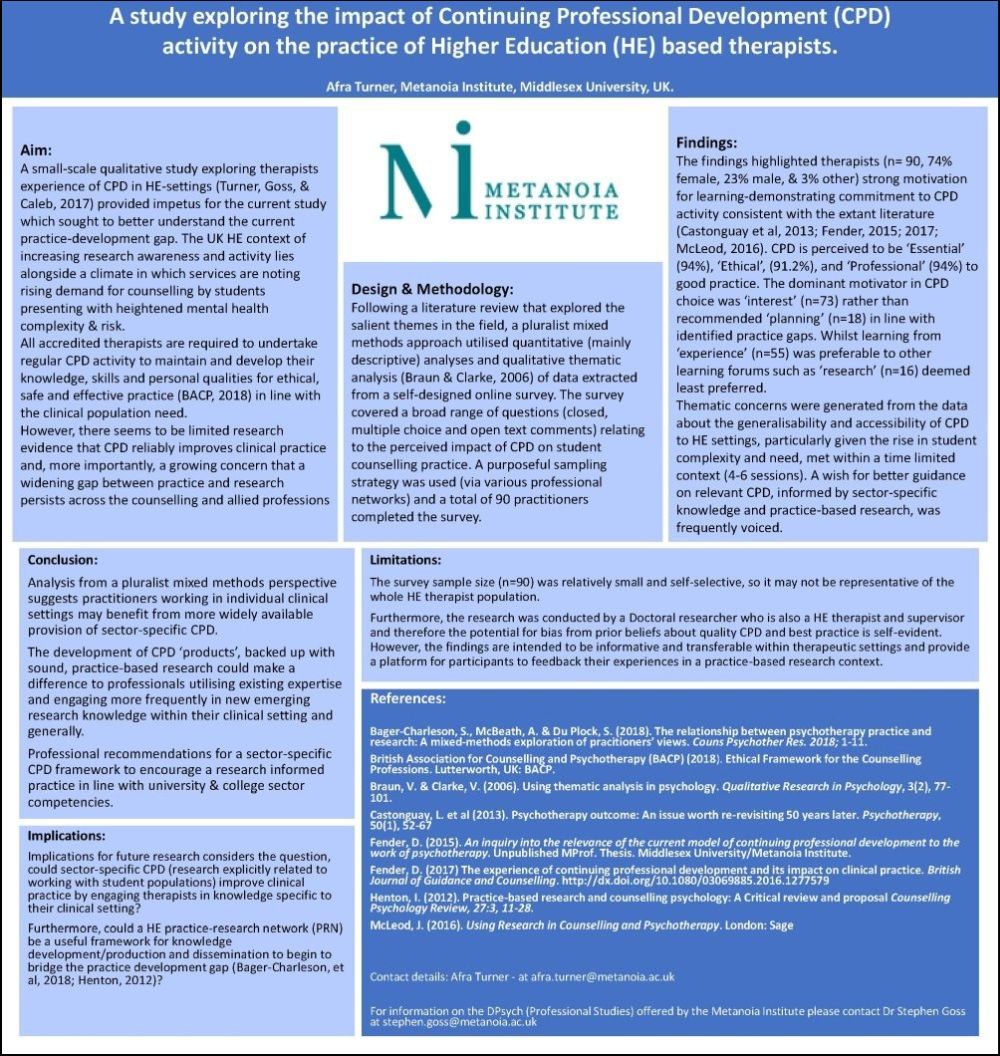
Aims or purpose
A preliminary small scale qualitative study, exploring therapists experience of continuing professional development (CPD) in a higher education (HE) (Turner, Goss & Caleb, 2017), found themes pertaining to a perceived lack of accessible and relevant good quality CPD products to support therapists practice needs. The findings provided the incentive for the current research design to further explore the impact of CPD on therapists’ practice at a time of unprecedented change, demand and increases in the mental health needs of student and staff. The project received ethical approval by Metanoia Research Ethics Committee in May 2019.
Design and methodology
The project utilised a pluralist, mixed methods approach to extrapolate data from a nationwide survey, using quantitative data analysis (SPSS) and qualitative thematic analysis (Braun & Clarke, 2006; 2013). A purposeful sampling strategy was used to anonymously collect data from therapists at university counselling services, via their professional networks, to explore their views on the impact of CPD on practice in the current climate of UK higher education settings.
Results and findings
Responses from participants (n = 90 – 74.4% female, 23.3% male & 2.2% other) suggest a strong adherence to professional recommendations of CPD (100% reported 30 hours CPD or more). CPD is perceived as essential (94%), ethical (91.2%) and professional (94%) to good practice. Thematic analysis of qualitative data produced a mixed response. Four meta-themes emerged from responses;
- formal and informal CPD is highly valued
- CPD guidance needed to meet HE competencies
- cost, geography and time limit access to certain CPD
- lack of sector specific and practitioner led quality CPD products.
Research limitations
The statistically significant but small sample size (N= 90, 15%) limits reliability and generalisability of findings. Furthermore, the lead researcher is a HE based therapist and supervisor delivering and undertaking regular CPD. Future research could address built-in confirmation bias by using an independent research body. However, the findings contribute to the limited literature on therapists’ experiences of working in challenging times, in relation to context-specific tensions and the impact of broader cultural, political and socioeconomic forces, on personal and professional development and practice in university settings.
Views expressed in this article are the views of the writer and not necessarily the views of BACP. Publication does not imply endorsement of the writer’s views. Reasonable care has been taken to avoid errors but no liability will be accepted for any errors that may occur.
